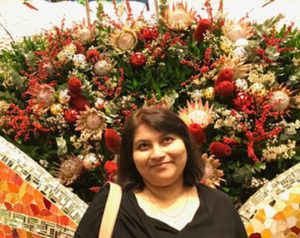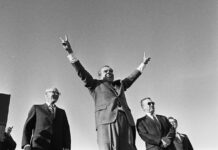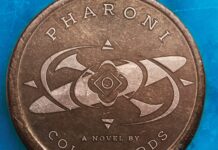Father! Thou must lead.
Do Thou, then, breathe those thoughts into my mind
By which such virtue may in me be bred
That in Thy holy footsteps I may tread;
The fetters of my tongue do Thou unbind,
That I may have the power to sing of Thee,
And sound Thy praises everlastingly.
This is from a poem by the famous Renaissance artist, sculptor, poet and architect Michelangelo. This particular poem, ‘To the Supreme Being’, was translated into English by the romantic poet, William Wordsworth (1770-1850). Here Michelangelo reaffirms his faith and talks of divine nature of inspiration, how God gives him the ability to write, paint and create. Michelangelo wrote about twenty poems, some of which bring to life the paintings of Sistine Chapel.
Centuries down the line, we find Nobel laureate Rabindranath Tagore in the opposite end of the world still acknowledging divine participation in his creative process. His experience seems to be close to that of Michelangelo. He finds that he is infused with a creative urge and inspired by divinity to create. In ‘Kemon Kore Gaan Koro he Guni’ (How do you sing O Divine One), he acknowledges this divinity:
How do you sing O Divine One,
I only listen to you in awe.
The tune is like the light that flashes through the world,
The tune is like the breeze that flows through the skies,
It thunders like a torrent ripping through rocks
Flowing creating a wondrous music.
I try to sing in that tune
And yet I cannot find that tune in my voice.
The lyrics hesitate to say what I want —
My life surrenders itself to you
You have trapped me
In this web of tunes
When Tagore and Michelangelo composed these poems, they wrote of being in touch with an energy that led to the creation of the most beautiful. In ‘Ode to a Grecian Urn’ (1819), romantic poet John Keats had stated –
“Beauty is truth, truth beauty – that is all
Ye know on earth, and all ye need to know.”
Imagination, beauty and God all merged together for the Romantics to create a sense of wonder and awe. However, it is difficult to find a definition of beauty or God in today’s poetry or postmodern literary thought. Essayist Pete Lowman, a doctorate on God and the English novel, enquires into this: “But now we have a culture that does not believe in God, so what is beauty? Is it purely subjective?”
Art is perhaps as close as we can get to it. French philosopher, Gilles Deleuze, an atheist and one of the major influences on postmodernism, defines the concept of art: “The rising ground is no longer below, it acquires autonomous existence; the form reflected in this ground is no longer form, but an abstract line acting directly upon the soul. When the ground rises to the surface, the human face decomposes in this mirror in which both determinations and in determination combine in a single determination which ‘makes’ the difference.” This kind of thought is often applied to poetry, making it an intellectual maze -perhaps too complex for the common reader to comprehend. But such art is not beauty or God. It is more an exclusive artistic expression to which only some can relate.
South Asian English poetry, while often influenced by occidental thought, seems to have continued having a stronghold in the voice of the people. Though whether God has ceased to exist as an entity or inspiration is not really talked of, the angst of the people has often been reflected in poetry. Amrita Pritam wrote passionate poetry in Punjabi. Her poetry, often feminist reflected on the issues faced by a woman in a patriarchal society. Her most famous ‘Aj Akhan Waris Shah Nu’ (Today, I Invoke Waris Shah), around Partition (1947) cried out against the violence that ripped through the subcontinent piecing it into India and Pakistan.
Today, I call Waris Shah, “Speak from your grave,”
And turn to the next page in your book of love,
Once, a daughter of Punjab cried and you wrote an entire saga,
Today, a million daughters cry out to you, Waris Shah,
Rise! O’ narrator of the grieving! Look at your Punjab,
Today, fields are lined with corpses, and blood fills the Chenab.
Some South Asian poets have gone deep into the politics of national identity to appease occidental critics. Nissim Ezekiel in his ‘Very Indian Poem in Indian English’ has tried to create a poem which is supposed to be depictive of how Indians think and speak.
I am standing for peace and non-violence
Why world is fighting and fighting
Why all people of world
Are not following Mahatma Gandhi,
I am simply not understand
He did what he was advised to by opinions such as that of Paul Gieve who states: “A writer needs a national or cultural identity, without which he becomes a series of imitations, echoes, responses; he does not develop, because there is nothing at the core to develop.” But, is that not rather a limited definition of a writer? Should poetry not be universal rather than defined by an outmoded concept borne off the steel mills of Lancashire in the eighteenth century?
While South Asian English poetry still reels under occidental influences, recognition, awards, communism and Nietzsche’s ‘God is dead’, in the mid-twentieth century, around the time Nissim Ezekiel was twenty and, two years after the death of Tagore (1941), Sartre explained the lack of God in his essay called ‘A New Mystic’ (1943): “We should not understand by that that He does not exist, nor even that he now no longer exists. He is dead: he used to speak to us and he has fallen silent, we now touch only his corpse. ”Was this a reaction to the World War that bore existentialism as its own child and adopted Kierkegaard’s absurdism and nihilism as its foster children and wove them deeply into the intellectual thought process so that it continued to bear fruit into our times?
Lowman traces the start of this disbelief to romanticism, imagination and then to Camus, a strong proponent of this philosophy. He explains, quoting Camus: “‘Up till now, man derived his coherence from his Creator. But from the moment that he consecrates his rupture with him, he finds himself delivered over to the fleeting moment, to the passing days, to the wasted sensibility.’ He (Camus) illustrated that waste on another occasion by remarking, ‘A single sentence will suffice for modern man: he fornicated and read the papers. After that vigorous definition, the subject will be, if I may say so, exhausted.’”
Then, can there be a reason left to write?
A current day favourite, Argentinian writer Jorge Louis Borges, finds one. He says wrote poetry because the lines came to him and bothered him till, he wrote them down. “If I don’t write this down, it will keep pushing on and worrying me. the best thing I can do is to write it down.” And the source of inspiration? Borges says, “I know for a fact that I accept my inspiration, but I am not sure where exactly it comes from.” Borges never admits his inspiration rests on the divine.
In an age of disbelief, Cambridge has taken on cudgels to foster religious imagination in contemporary poetry. They have started a reading group which clearly states: “If expressions of religious imagination in contemporary poetry occupy a marginal dimension of an already marginal art form, we nevertheless intend to enlarge our understanding of their tenacious characters against tendencies to marginalise theological reflection within poetic composition and analysis, we aim to foreground tenacious poets who plumb religious tradition(s) in order to renew the encounter between humanity and divinity in language.”
In an essay ‘Western Literature and the Death of God’, Lowman says: “That endpoint is all that is left in the universe. We have to ask: if there is no God, is there any logical alternative to postmodernism?”
Poet Desmond Kon of Singapore, despite dabbling in postmodernism, acknowledges the divine in his works. He mingles Derrida’s concept of “undecidability” with the phenomenon of religion – his poetry is more philosophical rather than devotional in its outlook. In his poem ‘noonology’ from his book The Arbitrary Sign, he writes
because phenomenology doesn’t account
for everything since everything already
has a name for itself that encompasses
this static this tabula rasa
this deux ex machina in mid- flight
that swoops in like a large bird
its phoenix tail a huge mane
and behind it a huge plume of more fire
but there is no noesis at work here
no attempt to recall or imagine or interpret
no ground to kissing like a conscious thought
His poem brings to recall that for the ancients — Greek and Romans — poetry was largely divine even though Aristotle called it “medium of imitation”. They had the nine divine muses in Greek mythology who inspired and helped artistes and writers create.Among moderns, a few more brave voices do acknowledge and cry out like that of Jeffrey William Haswell in ‘Divinity is Inviting’ (2010):
I believe the highest hopes and aspirations of humankind to be divine,
and I believe the epitome of Divinity to be True Love — Love in Truth.
And Ahmad Cox in ‘Divinity’(2013):
Divinity is inside
Divinity is God’s
Love in your heart
We all carry a piece
Of God’s love inside
Arundhathi Subramaniam does revive the divine in her poetry but again, one wonders if there a retreat to feminism in her thought, despite her biography on the Indian guru, Sadhguru Jaggi Vasudev, (who was in recent videos talking on how women in India should dress)? She says in an interview while discussing the past heritage of Bhakti poetry in India: “These(religious poets from the past) are poets who tell you that the sensual and the sacred are just part of the same continuum, and I think there is a deep hunger in almost every human being to be reminded of this; that there is nothing intrinsically unclean about this strange body which we find ourselves in. There is Soyrabai, 14th-century Dalit woman mystic from Maharashtra who says, ‘If menstrual blood makes me impure, show me who wasn’t born of that.’ I think we need all these voices, there are many others talking about the body; to remind us that this body is a part of the journey. The body is not an obstacle, the body is the basis of this journey.”
Subramaniam goes on to explain: “The range of tones possible in this legacy that we call sacred literature in our subcontinent is extraordinary. This is not about just a reverential worshipful attitude to the Divine, it is an attitude that can vary from rage towards God, you can throw a tantrum in verse and call it a prayer; there was lust towards God, the need to make love to God and there is of course longing, there is liberation and ecstasy; so there is this entire gamut of tones where nothing is taboo. Everything is permissible.”
And perhaps that is the spirit we see reflected in the verses of Dustin Pickering, a poet based in America, from far beyond the geopolitical influences of the Indian subcontinent. In his poem ‘Our Father’, from his collection – Flippancy Toward Resurrection – he questions biblical beliefs:
Mountains tend to pivot
against time immemorial
while beating wings
drive against self and sustenance.
Our Father who art
hallowed be thy name
on earth as it is in Heaven
forgive us our trespasses
Is Heaven an open door?
Does it lead to the leaden meadows?
What is the grave to me
if I accumulate deeper satisfaction?
Do I want to die? Is fire painful?
Is loss my fathomless pride?
The tone may not be reverential but the title of the collection states that. He has taken the Bhakti prima donna’s statement – ‘Everything is permissible’ – to heart. As, perhaps, has Desmond Kon with his questioning of both the fuzzy lines of phenomenology, religious and postmodern thought. Haswell and Cox are religious – and they do acknowledge that as does Subramaniam.
Though we find these glimmers of poetry in English touching on divinity, in a world torn with violence, can and should poets revive the concept of divine inspiration as we found in Tagore and Michelangelo? Can this kind of poetry born of divine inspiration bring back a sense of peace in a war-torn world? Can we actually create a world like Tagore dreamt of in ‘Where The Mind is Without Fear’–
Where the mind is without fear and the head is held high;
Where knowledge is free;
Where the world has not been broken up into fragments by narrow domestic walls;
Where words come out from the depth of truth;
Where tireless striving stretches its arms towards perfection;
Where the clear stream of reason has not lost its way into the dreary desert sand of dead habit;
Where the mind is led forward by thee into ever-widening thought and action—
Into that heaven of freedom, my Father, let my country awake.
About the Author

Mitali Chakravarty’s bylines appeared in The Statesman, The Times of India, The Hindustan Times and The Pioneer in the 1980s upto 1992 and more recently online on Kitaab.org, Countercurrent,















